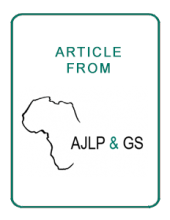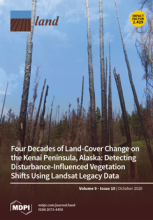Land Library
Bienvenue dans la bibliothèque du Land Portal. Explorez notre vaste collection de ressources en libre accès (plus de 74 000), comprenant des rapports, des articles scientifiques, des articles de recherche, des publications évaluées par des pairs, des documents juridiques, des vidéos et bien plus encore.
/ library resources
Showing items 1 through 9 of 37.This article analyses the contribution to local development by women workers in the fruit- and vegetable-handling sector in Almería (Spain) over the last five years (2015–2019). It is a continuation of research carried out during the period 2000–2014.
Abstract: To avoid illegal occupation of people in areas where construction is forbidden and the development of informal settlements, municipal authorities must anticipate city planning.
Women and youths encounter problems with access to land, as well as securing tenure in land resources [...]
L’acquisition de larges superficies de terres arables dans les pays en développement pour y effectuer des investissements a pris forme et ampleur au Sénégal en 2000 avec l’avènement des réformes dans le secteur agricole.
The Horn of Africa has seen its fair share of natural resource conflicts among and between competing pastoralists communities. The conflicts hitherto associated with men, ignored women pastoralists’ role in the same conflict.
We set out to unveil gender inequality with respect to women’s access to family land following the surge in tree-planting in selected villages in the Southern Highlands of Tanzania.
L’accès des femmes au foncier est au cœur de l’actualité depuis trois décennies. Dans le Sud de la Mauritanie, la mainmise des hommes sur les terres est une réalité. Les femmes ne représentent que 4.2% des détenteurs des Titres fonciers.
This paper explores the impact of large-scale agricultural investment on household livelihood outcomes among smallholder farmers in Kilombero Valley, Tanzania. The study used qualitative and quantitative data from a sample of 376 households.
Although land forms the basis for marginal livelihoods in Sub-Saharan Africa, the asset is more strategic for women as they usually hold derived and dependent rights to land in customary tenure areas.




